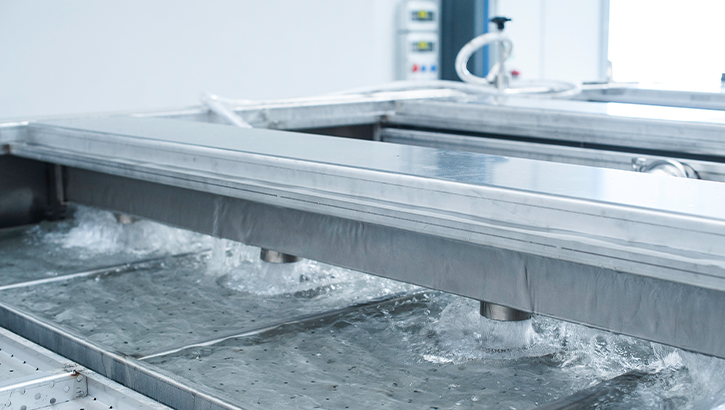How to Choose Equipment That Helps Reduce Waste and Improve Sustainability.
The impact of machinery on the sustainability of the food industry is crucial, as the sector plays a significant role in managing natural resources, reducing waste, and improving energy efficiency. Machinery not only contributes to the efficient production of food but can also be a key tool for enhancing sustainability by reducing waste, saving energy, and optimizing processes. Some important aspects to consider when selecting equipment include:
1. Energy Efficiency
The energy efficiency of machinery is one of the most relevant aspects for improving sustainability. Equipment that consumes less energy during the production process helps reduce the carbon footprint and operational costs.
- Advanced technologies: Machines with high-efficiency motors, energy recovery systems, and automatic speed controls help lower energy consumption.
- Equipment with energy efficiency certifications: Look for equipment with labels or certifications such as the ENERGY STAR label or ISO 50001 standards.
2. Reduction of Food Waste
Machinery should be capable of minimizing raw material waste during food processing. This can be achieved through:
- Precise cutting and packaging technologies: Machines that allow for accurate cuts, with minimal waste, and optimized packaging help reduce food loss.
- By-product recovery: Some machines enable the reuse of by-products (such as peels or pulps) to produce other food items or even biofuels.
- Continuous and automated processes: Automation enhances the precision of processed quantities, reducing human error that can lead to waste.
Investing in sustainable machinery not only protects the planet, it also improves the efficiency and profitability of your business.
3. Use of Durable Materials
The materials used in manufacturing equipment are also a key factor in sustainability. Equipment designed for long-term use, with individually replaceable components instead of full replacements, helps reduce the environmental impact associated with manufacturing and disposing of machinery.

4. Optimization of Water Usage
Water usage in the food industry is another critical factor for improving sustainability. Machinery that reduces water consumption or recirculates it for other processes is essential:
- Water recirculation systems: Equipment with recirculation systems allows for water reuse in multiple stages of the process, reducing the need for continuous supply.
- Efficient washing technologies: Machines with efficient cleaning technologies reduce water waste, which is vital in food production cleaning processes.
5. Automation and Process Control
Automation, by enabling precise process management, contributes significantly to sustainability by improving accuracy and reducing waste. With advanced control and monitoring systems, companies can:
- Optimize production: Adjust the amount of resources used, avoiding overproduction and waste.
- Prevent failures and unnecessary maintenance: Equipment with diagnostic and predictive maintenance systems can identify issues before they lead to costly failures that generate additional waste.
Choosing the right machinery is essential to promoting sustainability within the food industry. By considering factors such as energy efficiency, waste reduction, the use of durable materials, water optimization, and process automation, companies can reduce their environmental impact, save resources, and improve long-term profitability. Implementing such equipment not only benefits the environment but can also provide a competitive advantage in an increasingly sustainability-conscious market.
Starting from specific specifications in each case, we carry out the design and comprehensive production of Complete Lines that cover the specific needs of each client. Tell us about your needs and we will carry out a personalized project that adapts to your requirements. If you wish, we can work together from the beginning of the activity, renew your equipment or adapt to your new needs. Together, we are stronger. Each Project is unique and personal. Our capacity and experience enable us to tackle any possible project within the Food sector.
